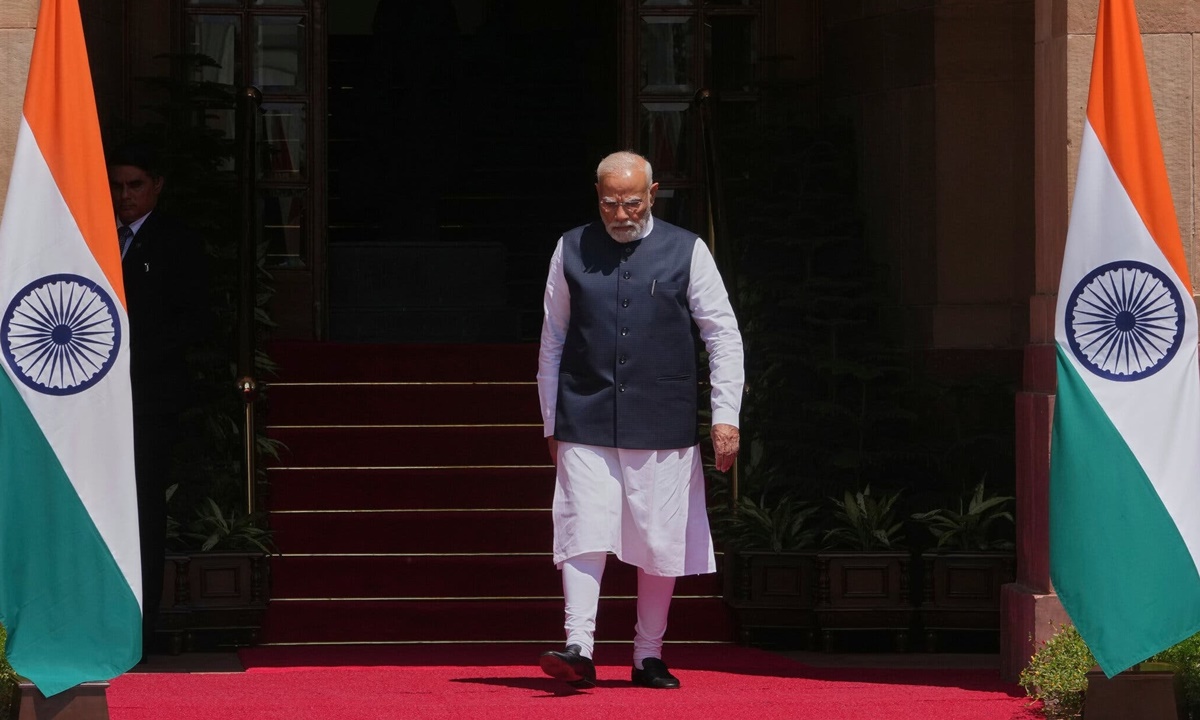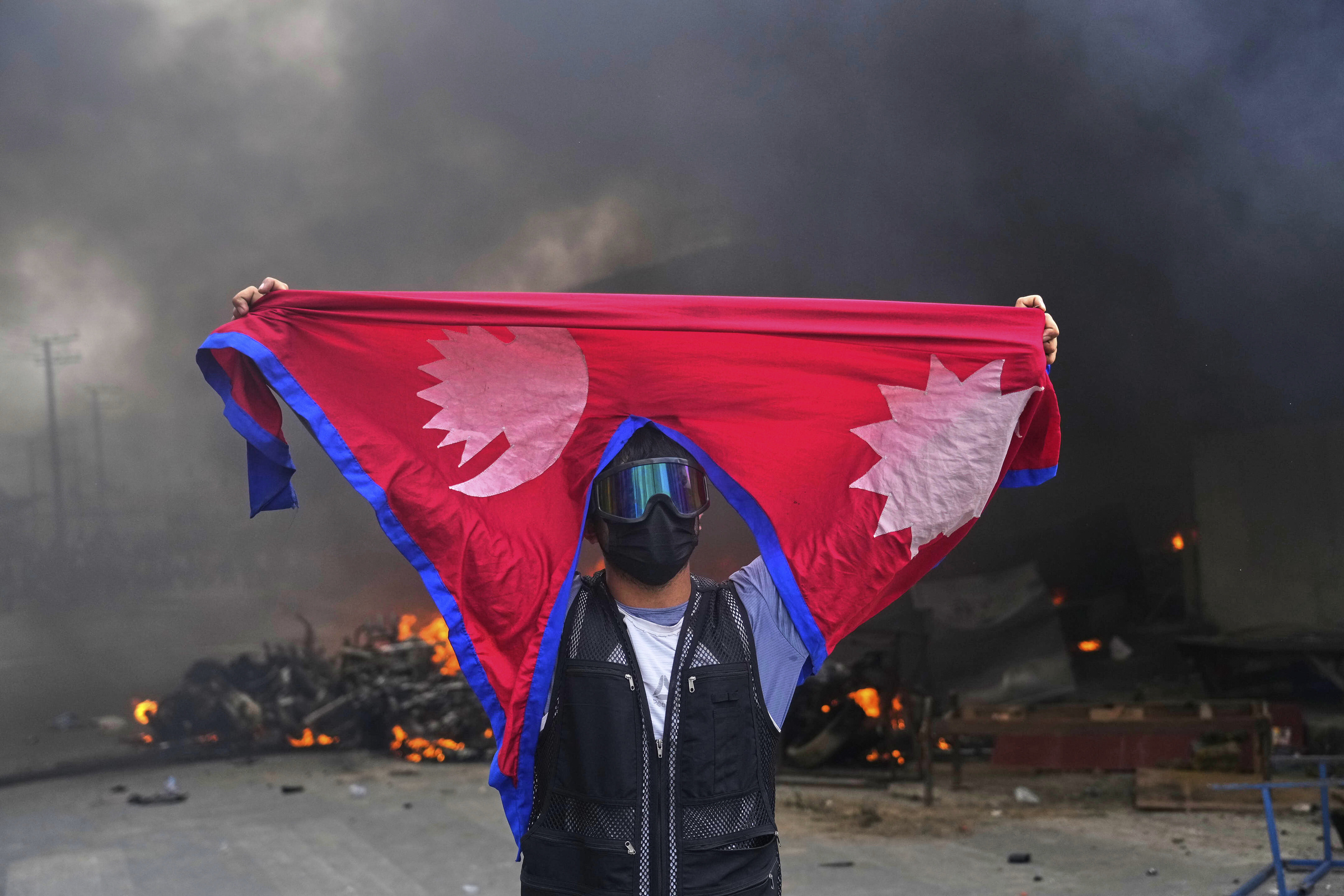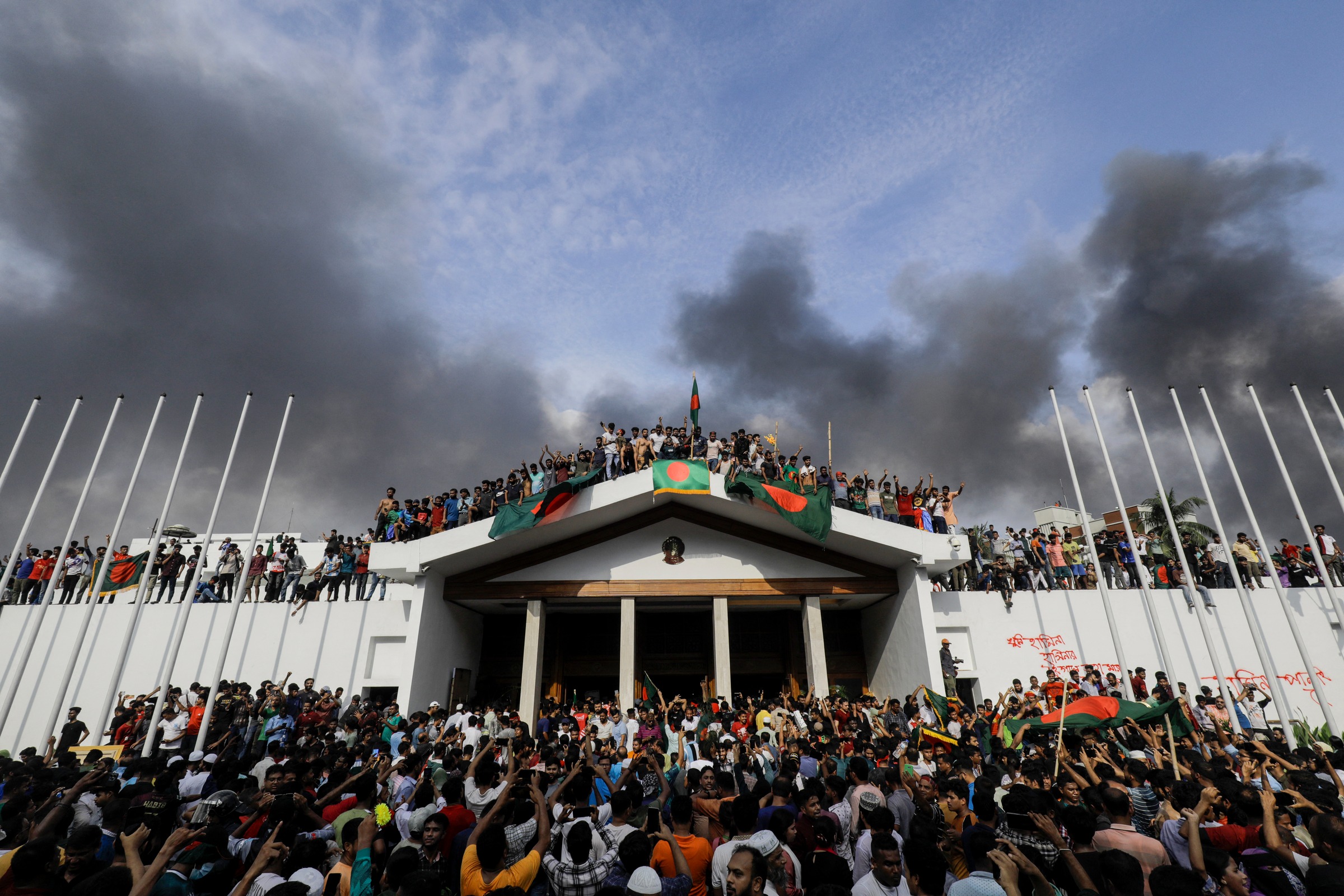Just weeks before protests erupted in Nepal earlier this year, India invited then-Prime Minister K.P. Sharma Oli for a state visit to New Delhi to smooth over strained relations.
But Oli never made the trip. He was forced to resign when Gen Z-led protests escalated into riots, marked by arson and attacks on officials. The unrest stemmed from youth frustration over corruption, unemployment, a stagnant economy, and growing inequality.
 |
Indian Prime Minister Narendra Modi in New Delhi earlier this year. Photo: AP |
Indian Prime Minister Narendra Modi in New Delhi earlier this year. Photo: AP
Similar protests in Bangladesh last year led to the downfall of Prime Minister Sheikh Hasina's government. In 2022, protests in Sri Lanka over the declining economy forced President Gotabaya Rajapaksa to resign.
South Asia, encompassing Nepal, Sri Lanka, Bangladesh, Bhutan, Pakistan, and the Maldives, is home to a quarter of the world's population and has the largest youth demographic.
India has long recognized the importance of nurturing economic ties with its historically and culturally linked neighbors, outlining a "neighborhood first" foreign policy.
India readily provides humanitarian aid to its neighbors during crises. Over the past year, it has become a more active lender and backer of infrastructure projects in the region. It also invites neighboring leaders for state visits to strengthen relationships.
Gautam Bambawale, India's former ambassador to China, said India's advantage with its neighbors is its "rapidly growing economy" and "they too can grow by partnering with us".
South Asian neighbors like Nepal and Sri Lanka sometimes rely on India for humanitarian support and economic stability, but they also resent New Delhi's interference in their internal affairs.
Nepal, a Himalayan nation of 30 million people, shares deep cultural ties and a 1,000-mile border with India. It depends on India for essential goods like fuel, but relations have deteriorated over the past decade.
 |
Nepalese protesters hold flags in front of a burned police station in Kathmandu on 9/9. Photo: AP |
Nepalese protesters hold flags in front of a burned police station in Kathmandu on 9/9. Photo: AP
In 2015, as Nepal was recovering from a devastating earthquake that killed nearly 9,000 people, India stopped fuel tankers from entering the country, citing political instability surrounding a new Nepali constitution. However, Kathmandu accused New Delhi of imposing a "fuel blockade" to punish Nepal for refusing to amend constitutional provisions to benefit groups aligned with India.
The dispute fueled anti-India sentiment, and the then-Nepali government began signing more agreements with China, according to Apekshya Shah, associate professor of international relations and diplomacy at Tribhuvan University in Kathmandu. This became "a contentious issue with India," which clearly doesn't benefit from expanded Nepal-China relations, Shah noted.
India has also alienated some neighbors with its policies and its refusal to adjust them when faced with opposition. Relations with Bangladesh deteriorated last year after Prime Minister Sheikh Hasina was ousted and fled to India.
Many Bangladeshis resented India's continued support for Hasina, who was accused of using excessive force against protesters, raising concerns from human rights groups, but was seen as a steadfast ally by New Delhi.
Simultaneously, attacks on the Hindu minority in Bangladesh angered Hindu nationalist groups in India. India stopped issuing almost all visas to Bangladeshi citizens, and earlier this year, the two countries restricted trade across land borders.
Husain Haqqani, Pakistan's former ambassador to the US, said the Modi government's staunch Hindu nationalism could alienate other religious groups in neighboring countries.
"Hindutva may be a unifying factor for Hindu-majority India, but it doesn’t help win over Muslims in Bangladesh or the Maldives, and Buddhists in Sri Lanka," Haqqani said, using a term for Hindu nationalist ideology.
India's long-standing animosity with Pakistan, coupled with Pakistan's growing closeness to China, makes national-level reconciliation nearly impossible.
 |
Protesters storm the Prime Minister's Office in Dhaka, Bangladesh, in 8/2024. Photo: AFP |
Protesters storm the Prime Minister's Office in Dhaka, Bangladesh, in 8/2024. Photo: AFP
Maldives President Mohamed Muizzu won the 2023 election on a platform of expelling Indian troops. But last year, he visited India, and relations began to thaw.
In July, Prime Minister Modi announced a $565 million credit line for the Maldives and said the two countries would start free trade negotiations. The Maldives, a small island nation of only 500,000 people, holds strategic importance for both India and China.
Observers say the political turmoil in neighboring countries is increasing risks to India's interests, diminishing its influence in its traditional "backyard" from the Himalayas to the Indian Ocean.
"India cannot complacently believe that its neighbors’ negative perceptions of it will be overridden by their need for Indian assistance," said Michael Kugelman, a senior associate for South Asia at the Asia Pacific Foundation of Canada. "The risk for India is that political volatility in the region will produce new political actors hostile to its interests."
Experts say India still holds sway in South Asia, but the risk of losing it is high. According to Kugelman, the region remains a volatile "tinderbox," with simmering border disputes, polarized politics, disgruntled populations, and fragile economies.
"As a country with great power aspirations, India has a strategic incentive to ensure that its neighborhood doesn’t become a roadblock to those ambitions," he said.
Vu Hoang (Reuters, AP, AFP)












